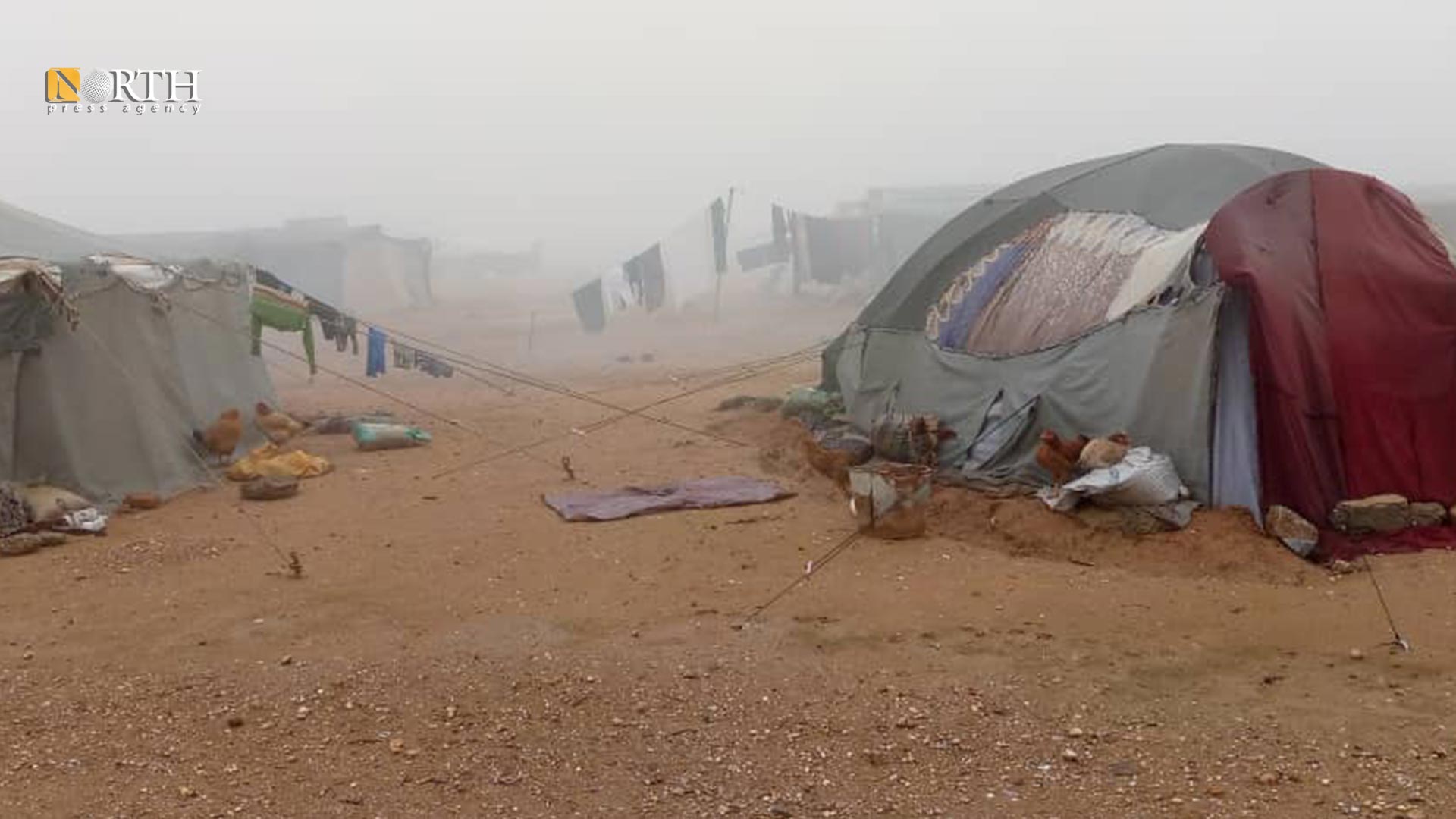RAQQA, Syria (North Press) – With soot-blackened hands, Khoud tries to light a fire in a handmade oil tin heater she rescued from the garbage. As the flame grows, the old woman proceeds to wash her hands – in vain.
Khoud al-Abdullah, 53, an IDP in the al-Hakomiya camp, 30 km north of Raqqa in northern Syria, gathered limestone and plastic bags from the trash daily in order to heat her home. She said the situation in the camp is ‘tragic’.
The IDPs in Raqqa’s makeshift camps face difficult humanitarian and economic conditions as a result of lacking aid supplies. They are the result of the continued blockade of all aid border crossings into North and East Syria (NES), especially the al-Ya’rubiyah (Tel Kocher) crossing.
Tel Kocher, which connects NES to Iraq, was closed in early 2020 as a result of Russian and Chinese vetoes at the United Nations Security Council (UNSC).

Al-Abdullah expressed her exasperation at the absence of heating fuel during the current winter season, as temperatures drop below freezing.
Her family, which consists of 20 members, receives only ten loaves of bread per day. They are unable to afford even the subsidized bread, as they, like many other IDPs, face major economic challenges.
Al-Abdullah added that she was unable to afford an alternative, and the toxic smoke of the limestone has left her sick with asthma; once she had to be rushed to the emergency room. Her children, too, suffer from exposure to the fumes.
The majority of the IDPs in Raqqa use wood, plastic, and shoes collected from the garbage to heat their tents, despite the health risks.
Al-Abdullah and the IDPs in al-Hakomiya makeshift camp complain about the lack of assistance they receives from NGOs, as no tents or blankets were handed out to them. Due to the bad quality of the tents, al-Abdullah said, the camp’s residents gathered in one of the tents on rainy days, in order to endure the harsh weather conditions together.
On Monday, the IDPs and Refugees Department of the Autonomous Administration of North and East Syria (AANES) warned that if Tel Kocher remained closed it would lead to health and humanitarian crises.
Abu Dawash, 60, another resident of al-Hakomiya, also expressed his concern about the lack of heating fuel and the bad condition of his tent in relation to the current extreme cold weather.
He said that all IDPs suffer from the same problems: no fuel, no bread, and no wood for heating.
As a result of the dire living conditions, he was forced to sell all of his property. He added that he own no more blankets to shield his children from the cold.
Hani al-Muhammad, 33, is plagued by similar concerns. “The people in al-Hakomiya camp are starving,” he said. His family, 18 members in all, receive only ten loaves of bread a day. He added that they are dying from exposure to the cold temperatures and that humanitarian organizations have not provided anything to them.

The people of NES, especially IDPs, fear the effects a continued closure of Tel Kocher border crossing could have on the region.
Sheikhmous Ahmad, an official of the AANES IDPs and Refugees Department, told North Press that the ongoing closure of Tel Kocher is having a detrimental effect on the situation in the region’s camps and shelters.
The humanitarian aid that arrives in the region through Syrian government-held areas is often sold in local markets and reaches only a fraction of the needy, Ahmad added, accusing the Syrian government of exploiting their control over UN aid in order to pressure the AANES.
He demanded that the UN and its Security Council open the border crossing so that aid can be delivered to people in need in NES, similar to how it is delivered to other regions of Syria.

